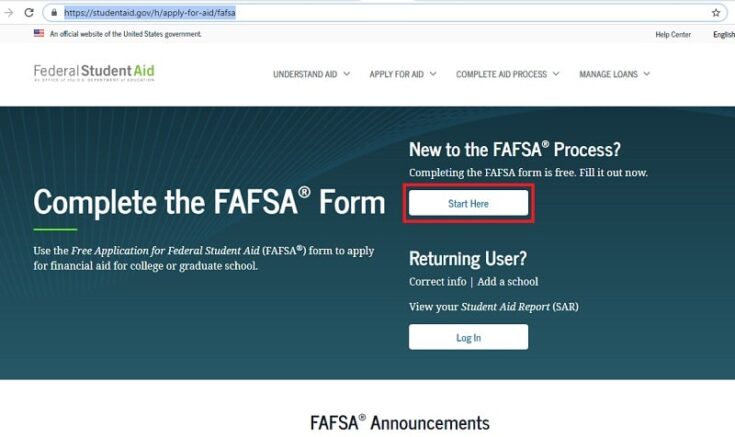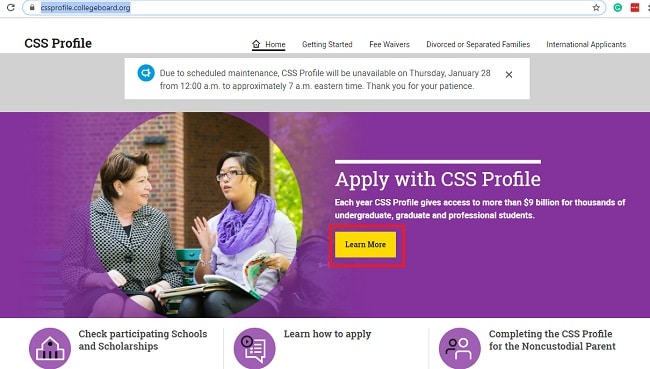If you apply for university, you have probably heard students gripe about scholarships and grants – everything from the application procedure to the problematic prerequisites. However, it’s definitely possible to get access to grants for college.
If you search for your available alternatives and keep a record of your results, the procedure doesn’t have to be excruciating. We have cut down on your exploration by offering you the sources that will help you discover grants that are perfect for you.
While grants are awarded on need and merit, scholarships are essentially awarded depending on demand. For most scholarships, the percentage is not a deciding factor. It’s no surprise that scholarships are the most sought after type of financial help, as scholarships are like “free cash” that can be utilized for tuition fees or other college expenditures.
Get free grants for college students
What do you mean by a grant?
A federal grant for college is a type of federal monetary assistance where the United States government rearranges its assets and offers government grants to qualified recipients who exhibit financial aid.
Beneath, you can find out more about State Grants, Federal grants for college, pell grants, College Grants for single mothers, College Grants for adults over 40, Government grants, grants for living expenses while in college, and different grants in exceptional situations. Simply follow the steps below, and you will have a greater chance of uncovering grants that are the right fit for you.
Fill the FAFSA Form
Both state and federal governments offer free grants for college. To be qualified, you’ll be required to fill out the Freeform for Federal Student Help (FAFSA). You have to fill a FAFSA application so that the universities can know the extent of your qualification for financial assistance.
You can complete this step here: www.studentaid.gov/h/apply-for-aid/fafsa.
Know your EFC (Expected Family Contribution)
One of the driving factors in analyzing your eligibility for federal grants is your EFC (Expected Family Contribution), which is computed through the data you give on your FAFSA application.
Your EFC is the sum your family agrees to pay for university based on monetary data if they intend to bear the expenses. Students with higher EFCs certainly get loans instead of free grants, but don’t be discouraged.
Understand your grant option
Colleges can decide to dispense grant funds as a lump-sum amount or as a payment by sending government monetary funds to your university and crediting them to your record.
- Government Pell Grants: Government Pell Grants is a common and huge source for federal grants, and they are given based on your financial aid.
- Scholarly Competitiveness Grant: This grant is an amalgamation of need and merit-based grants for sophomores and first-year students.
- TEACH Grants: Teach grants are for students who consent to teach for 4 years at a secondary or elementary school that serves low-income groups.
- SMART Grant: This free grant for college is available to college seniors and juniors based on their merit and need.
➞ READ MORE: Erasmus Grant.
CSS Form
While the FAFSA is the main gateway to financial assistance, it’s not the only choice. You can also opt for a CSS Profile to get free grants for college-level education.
The CSS profile is an in-depth alternative that costs $20 for your form and $15 for every school. If there’s a school you feel is out of your league, then this might be worth it.
Consider State Grants
Once you’ve gone through all of your federal grants for college alternatives, consider state scholarships by connecting with state grant agencies offered by the Department of Higher Education.
Discover options for special grants
There are many college grants for single mothers, college grants for adults over 40, grants for living expenses while in college, etc. These are some of the most neglected grants for college, so take some time to know if these grants are suitable for you.
- Grants for Global Students: There are grants for global students; however, they’re typically lower than domestic students’ programs.
- Grants for Women: College grants for single mothers and women allow females to carry on their education that has previously not been available to females.
Final thoughts
While the US Department of Education is still the primary place you must visit when applying for financial help, state, private, and government grants ought to be dismissed while considering all of your alternatives for financial assistance.
Make the most of scholarships and grants before thinking about taking out a loan. Otherwise, you could end up committing these student loan blunders. If possible, utilize student loans as an extension to fill the gap between scholarships, grants, and tuition.

The essential springboard into the job market for school leavers, students and graduates.
The AllAboutGroup have worked across more than 1000 campaigns with HR teams from over 250 firms over the last decade as their partners to help them solve problems across all parts of the recruitment process.



